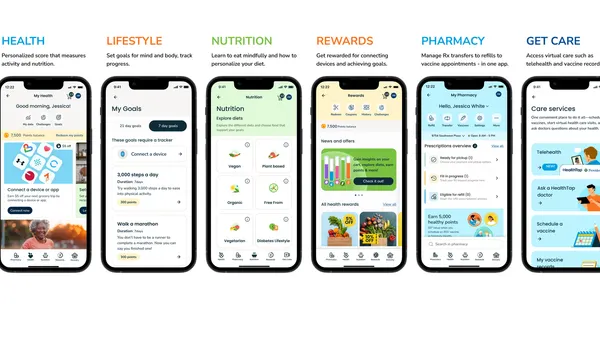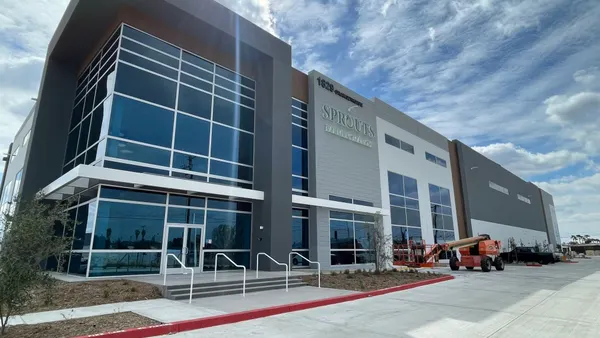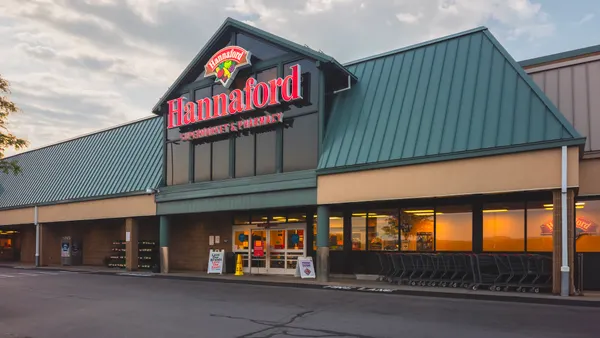Dive Brief:
- Ahold Delhaize announced Tuesday an updated CO2 emissions reduction target, pledging to reduce Scope 3 emissions by at least 37% by 2030.
- Scope 3 emissions involve a business’s indirect emissions from supplier, producers and farmers. Sustainability experts have said Scope 3 is one of the hardest areas for retailers to curb emissions.
- Ahold Delhaize said the updated target aligns with the United Nation’s aim of keeping global warming below 1.5°C.
Dive Insight:
The new Scope 3 emissions reduction is part of the grocery company’s larger commitment to become a net-zero business across its entire supply chain, products and services by 2050.
The new emissions target updates the baseline from the company’s emission profile in 2018 to its most current 2020 profile, the press release noted. The target aligns with the Science Based Targets initiative’s (SBTi) Net-Zero Standard and the baseline update stemmed from a recommendation by SBTi.
Ahold Delhaize noted it remains committed to its Scope 1 and Scope 2 goals, which involve emissions from the company’s own operations such as refrigeration systems and energy use.
The grocery operator pledged last November to reach net-zero carbon emissions across its own operations by 2040 — 10 years earlier than previously pledged — and has an interim target of a 50% reduction by 2030.
Ahold Delhaize’s updated Scope 3 target is tied to the company’s participation in the Business Ambition for 1.5°C, which it joined one year ago. The global coalition of UN agencies, businesses and industry leaders working with SBTi and the UN-led campaign “Race to Zero” requires its members to annually report their company-wide greenhouse gas emissions.
The grocer said it started working on its new Scope 3 target after an extensive review, which kicked off a year ago in partnership with external experts. That review found that Scope 3 emissions mainly result from three categories: suppliers and farmers, low-carbon products and customer engagement.
The grocer noted some efforts to help achieve its target include setting up long-term contracts between farmers and the company’s brands, introducing more low-carbon products such as plant-based proteins and incentivizing customers to make more sustainable choices through loyalty programs and discounts.
“As a group of mainstream supermarkets and retailers, we want to provide customers with sustainable and healthy products, while keeping shelf availability and affordability top of mind. Our commitment is to future generations, to continue to play a leading role in the transition to a more sustainable food system,” Jan Ernst de Groot, chief sustainability officer of Ahold Delhaize, said in a statement.
De Groot, who was named Ahold Delhaize’s first chief sustainability officer this summer, highlighted the Albert Heijn banner as one of the “frontrunners” within the company inspiring change among its banners. Last week, Albert Heijn moved up its Scope 3 emission reduction target from 15% to 45% by 2030. That banner is also aiming to distribute 60% plant-based and 40% animal-based protein sales by the same year.












